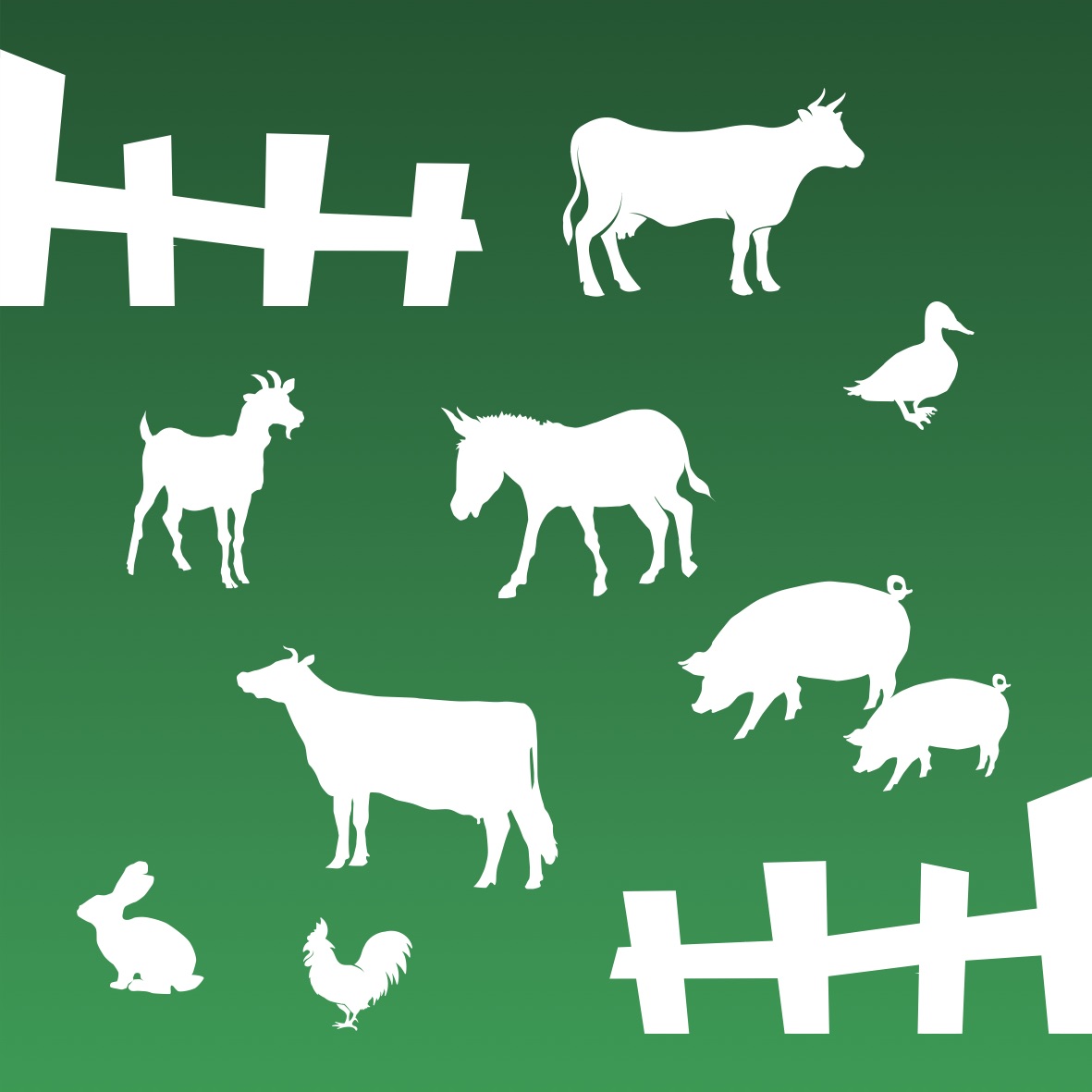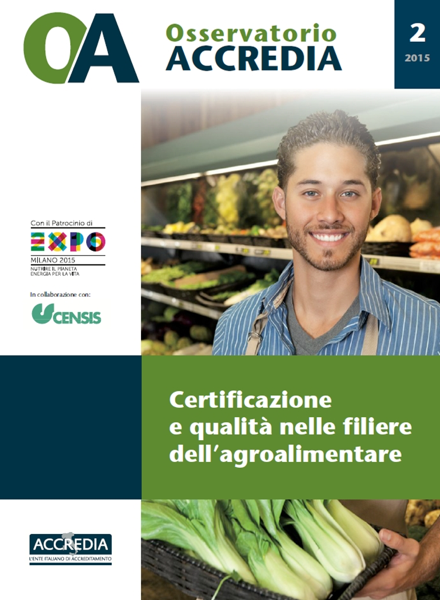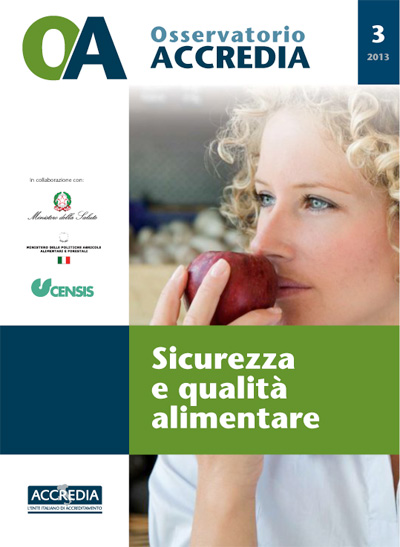Agri-food
Quality, traceability, sustainability
Accreditation is a fundamental tool for guaranteeing quality and safety in the agri-food sector, from organic products to Made in Italy, from European quality marks to animal welfare.
From accredited laboratory analyses to certifications for PDO, DOC, DOCG, PGI, TSG and organic products, accreditation guarantees the quality and safety of agri-food products, enhancing excellence and transparency throughout the supply chain.
Accredia helps verify farming practices, traceability and sustainability, promoting animal welfare. The National Quality System for Animal Welfare (Sistema di Qualità Nazionale per il Benessere Animale – SQNBA), based on accreditation, ensures rigorous controls and reliability, supporting the development of responsible and competitive agriculture.
National Quality System for Animal Welfare (SQNBA)
Improving the sustainability of production processes is a strategic factor for achieving the objectives of the Farm to Fork programme and the National Recovery and Resilience Plan (NRRP).
The environmental, economic and social sustainability of animal production can be achieved through the adoption of breeding techniques that focus on farm management and biosecurity. These aspects are closely linked to animal welfare, and include the responsible use of medication, in line with the integrated One Health approach.
In Italy, article 224-bis of Law no. 77 of 17 July 2020 introduced the legislative basis for developing a national certification system: the National Quality System for Animal Welfare (Sistema di Qualità Nazionale per il Benessere Animale – SQNBA).
The SQNBA defines a national production scheme, establishing general rules and technical requirements for the management of livestock farms, according to scientific parameters. Adherence to the system is voluntary and open to operators who undertake to respect the rules of the scheme and to undergo the planned controls.
Added value on the market
The SQNBA is aimed at breeders and companies that market products from farms certified for animal welfare. The certification issued by accredited bodies allows the added value of sustainable farming practices to be communicated to consumers.
A network of stakeholders
The objective of the SQNBA is to create a single reference standard for the voluntary certification of animal welfare, allowing the harmonisation of the various existing protocols and making information clearer for consumers.
In this complex system, in addition to the farmers, there is also the Ministry of Health, the Ministry of Agriculture, the Regions, Accredia as the National Accreditation Body, the accredited certification bodies, and the professionals who work on the farms, starting with the veterinarians
The regulatory framework
The SQNBA is structured according to the discipline of the Ministry of Agricultural, Food and Forestry Policies and the Ministry of Health: a general part, defined by the Decree of 2 August 2022, and a series of annexes, contained in the Decree of 23 October 2024:
- Annex 1: Requirements for Certification Bodies and the certification process
- Annex 2: Requirements for food sector operators
- Annex 3: Regulations on certification requirements for fattening pigs (over 50 kg) reared in the open air
- Annex 4: Regulations on certification requirements for dairy cattle in stalls
- Annex 5: Regulations for the animal welfare of beef cattle in stalls;
- Annex 6: Regulations for the animal welfare of cattle in family farming;
- Annex 7: Regulations for the animal welfare of cattle reared with or entirely on pasture.
The Ministry of Agricultural, Food and Forestry Policies has published a Frequently Asked Questions document, which answers questions from all stakeholders on points of interest relating to the application of the SQNBA.
SQNBA and accredited certification
The certification of farms and the supply chain according to the SQNBA is based on adherence to the Classyfarm system and verification by bodies accredited by Accredia.
The qualification of farms and the supply chain according to the National Quality System for Animal Welfare (SQNBA) is based on two fundamental elements:
- Adherence to the Classyfarm system.
- Certification issued by bodies accredited by Accredia.
Farms (primary production) can obtain the qualification by submitting an application to the accredited certification bodies.
Operators in the supply chain, on the other hand, can request SQNBA Chain of Custody certification to certify and communicate the certified origin of their products.
The certification is issued according to the UNI CEI EN ISO/IEC 17065 standard and includes checks:
- For farms, on compliance with the specific requirements of the SQNBA, divided by animal species, production method and production orientation.
- For supply chain operators, on the compliance of the identification and traceability systems adopted.
Initially, the system will be applied to pig farms for the fattening phase, both indoor and outdoor. Subsequently, other types of farms and additional production phases will be included, with a view to the progressive expansion of the system.
In particular, farmers must:
- Be registered or recognized in accordance with the specific regulations in force.
- Be a member of Classyfarm.
- Meet, where required, the prerequisites for access to the certification scheme for the animal species, production orientation and production method of interest.
- Comply with the requirements and procedures defined in the SQNBA certification.
Classyfarm
Classyfarm collects and analyses data on livestock farms to assess the risk to animal health and welfare, supporting more targeted and efficient controls.
The Classyfarm database records data for each farm in six key areas:
- Biosecurity
- Animal welfare
- Medication use
- Injuries detected at slaughter
- Animal feed
- Health and production parameters
This data is processed using scientifically validated coefficients, generating a numerical indicator that measures the current level of risk of the farm. The objective of the system is to provide a uniform categorization of risk in farms.
This allows the competent Authorities to plan controls in a more effective and targeted way, with significant advantages: reduction of costs for the Public Administration and lightening of the burden for operators who comply with current legislation.

Classyfarm
System designed by the Directorate of Animal Health and Veterinary Medicines of the Ministry of Health for the categorization of farm risk in the field of veterinary public health.
Publications

Certification and quality in the agri-food supply chain – 2015
Agri-food production is a strategic sector of the Italian economy. The guarantee of quality and safety offered by certification contributes to enhancing one of the expressions of Made in Italy that is most appreciated in the world. A key role is played by supply chain certifications.

Food safety and quality – 2013
The desire to find “identifiable, safe and good” food is increasingly evident among consumers, even if some cases of adulteration and food fraud, amplified by the media, have generated fear and mistrust. Precisely for this reason, it is important not to lower our guard and to maintain the high standard of controls carried out daily in Italy on agri-food products.
Survey on food quality brands – 2011
Italians attach great importance to agri-food quality certification marks. DOCG, PGI and BIO (organic) are acronyms known to most consumers. The presence of certification marks is an important variable in the decision to purchase a product, immediately after aspects such as price, brand, typicality, nutritional aspect, convenience of use and respect for the environment.